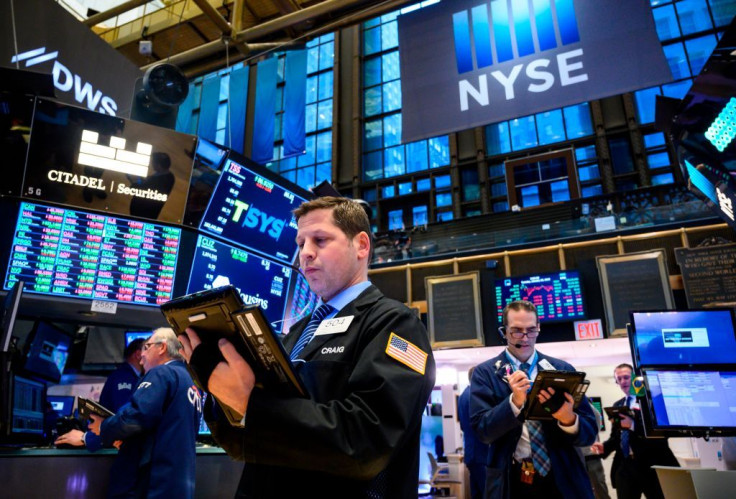Morgan Stanley Warns Of Recession, Says Fed Rate Cut Might Be Too Late

Any interest rate cut by the U.S. Federal Reserve, including the one widely expected next week, won’t save the U.S. economy from a recession over the next year, warns Morgan Stanley.
The next recession will start as a demand shock, according to Ellen Zentner, Morgan Stanley chief U.S. economist. Zentner said the current “credible bear case” probability is about 20 percent, but that might change quickly depending on the track ongoing trade tensions with China take.
“For now, the path to the bear case of a U.S. recession is still narrow, but not unrealistic,” said a report from Zentner and her team.
They said reliable yardsticks of an impending recession are nonfarm payrolls, consumer strength, manufacturing and aggregate indicators of growth such as those the Conference Board publishes.
As a whole, data confirming a recession are “just outside the danger zone,” wrote Zentner. But “these series can deteriorate rapidly, and a continuation of current deceleration trends through the summer would materially increase the risk of recession.”
At the heart of the recession case being made by Morgan Stanley are the intractable trade tensions between the United States and China that stand to trigger layoffs and a deceleration in consumer spending.
“If trade tensions escalate further, our economists see the direct impact of tariffs interacting with the indirect effects of tighter financial conditions and other spillovers, potentially leading consumers to retrench,” wrote Zentner.
“Corporates may start laying off workers and cutting capex as margins are hit further and uncertainty rises.”
Taken together, these events will amount to a “large demand shock.” This huge hit will slow U.S. economic growth to negative 0.1 percent in 2020 from a projected 2.2 percent expansion in 2019. Zentner described this slowdown as a shallow recession but one that is, nevertheless, a huge comedown for an economy that grew 2.9 percent in 2018.
There will also be a big hit to stocks. Morgan Stanley said investors will be better served investing in defensive sectors like healthcare and consumer staples. Based on past experience, fixed income tends to outperform as a safe haven during a recession.
On the other hand, motor vehicles and tech hardware are sectors most likely to underperform. Other sectors for investors to avoid include cyclical stocks and high-yield bonds.
Investors should start becoming defensive now, says Morgan Stanley.
“Since recessions do not announce themselves when they arrive and markets are forward-looking, history suggests that investors should not wait for confirmation of a recession before getting more defensive in their asset allocation,” wrote Zentner. “Patience does not pay when it comes to recessions."
Zentner said waiting until the National Bureau of Economic Research (NBER) actually pronounces the economy in recession is a good time to start buying because the market already will have started pricing a recovery.
She believes the upcoming Fed rate cut might be negated by increasing pressure from tariffs that could pull both the U.S. and global economy into recession.
More and more experts are now openly predicting a recession. The New York Fed estimates a 33 percent chance of a recession in the next 12 months, the highest level since the Great Recession of 2008.
© Copyright IBTimes 2024. All rights reserved.





















